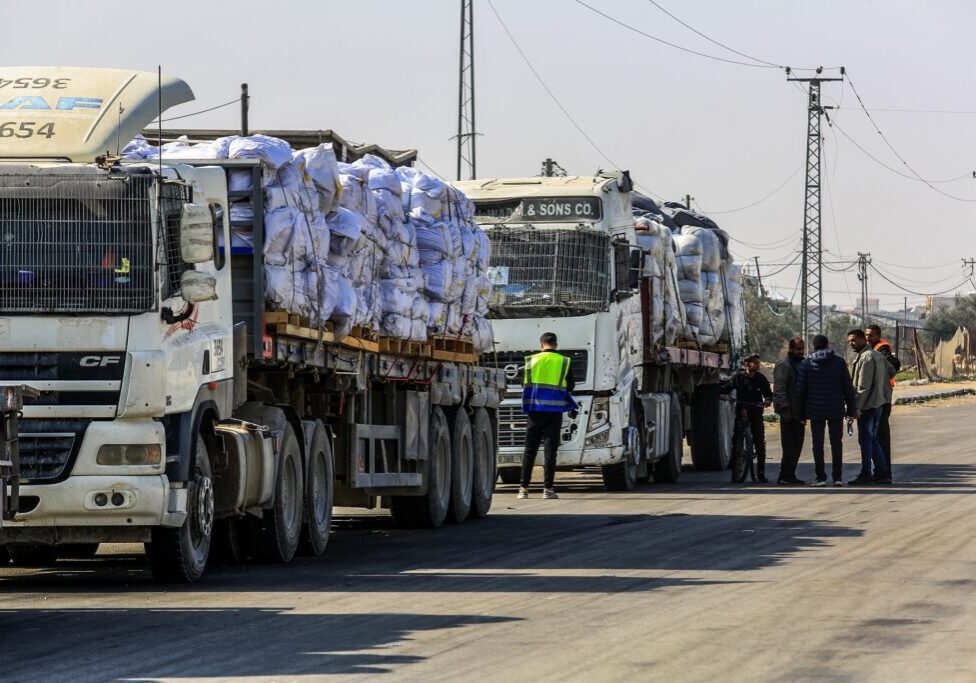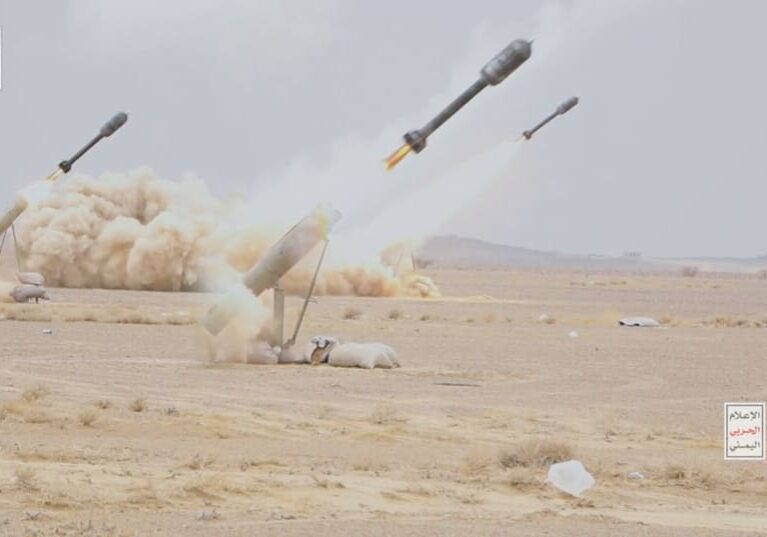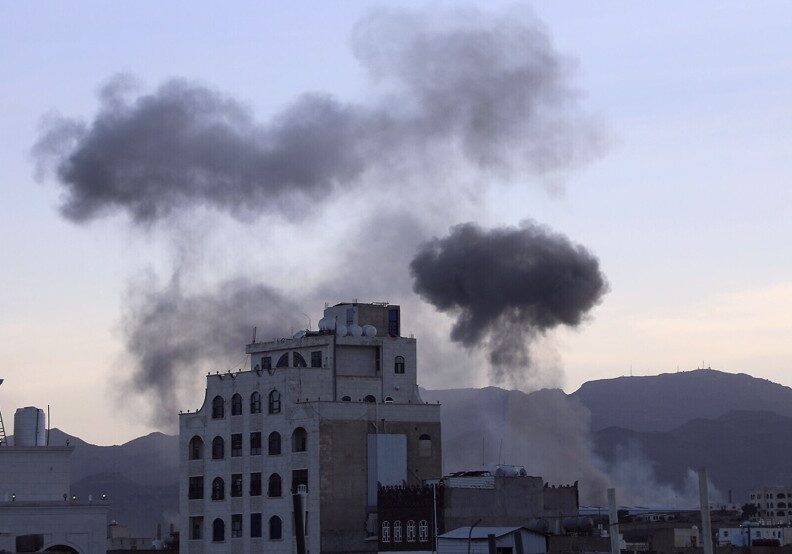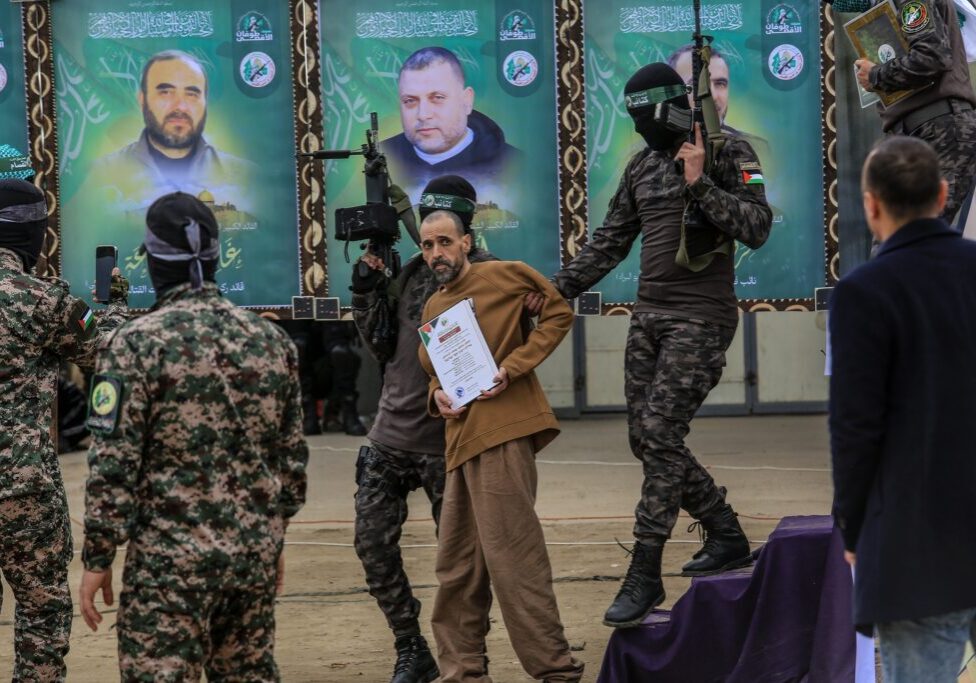Australia/Israel Review
Lebanon’s new ‘Great Satan’
Aug 4, 2020 | Khaled Abu Toameh
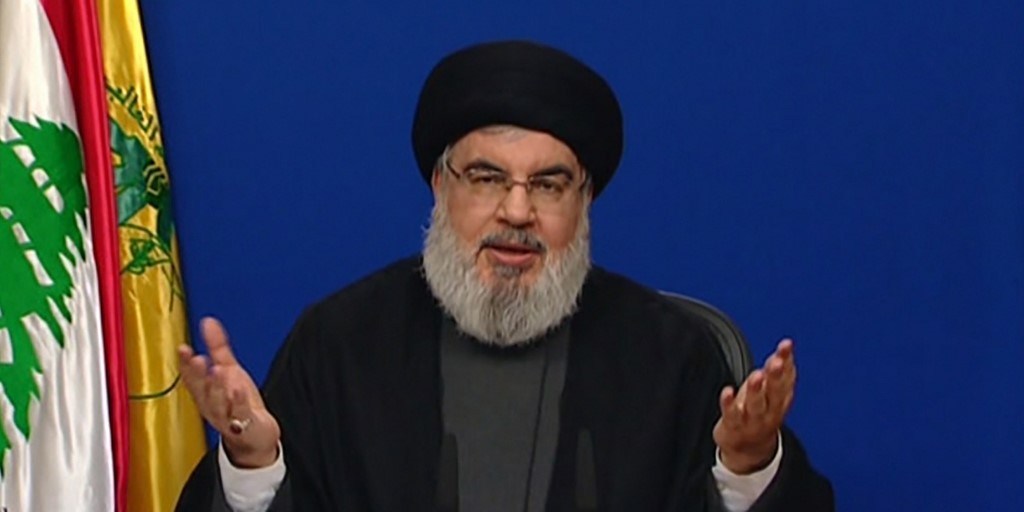
Dominated by the heavily-armed terrorist group Hezbollah – “The Party of God” – Lebanon is currently facing the worst economic crisis in its history. The crisis is seen as the biggest threat to its stability since the 1975-90 civil war in Lebanon. The World Bank warned last November that if conditions worsened, the proportion of Lebanese living in poverty could rise to 50%. Since then, the economy has been further hit by the restrictions imposed to curb the spread of the coronavirus pandemic, so the crisis has only deepened.
As the country’s currency collapsed to an all-time low against the US dollar, thousands of Lebanese have been protesting by blocking roads with burning tyres and setting fire to banks.
This mess, which has resulted in an increase in the crime rate, was caused by a corrosive confluence of government malpractice, economic instability and external interference. In the first four months of 2020, murders in Lebanon doubled compared to the same period last year. Burglaries increased by 20% and car thefts by nearly 50%.
Many Lebanese hold Hezbollah responsible for the crisis, mainly because of its wars with Israel and its support for Iran in conflicts with Sunni-led Gulf states.
Until recently, Hezbollah’s leader Hassan Nasrallah referred to the US as the “Great Satan.” Earlier this year, Nasrallah’s Iranian-backed terrorist group sent a warning to the US:
“We warn the Great Satan, the bloodthirsty and arrogant regime of the US, that any new wicked act of further aggression (against Iran) will bring about more painful and crushing responses.”
In another statement, in January, Nasrallah said:
“America, the Great Satan, is responsible for Israel and all its crimes against the Palestinian people. America built ISIS (Islamic State terrorist group) to destroy our countries, our culture, history, and our future. We must never forget this, that America is our true enemy.”
The “Great Satan” has been an integral part of Nasrallah’s fiery anti-Israel and anti-American speeches for several years.
On July 7, however, Nasrallah, who regularly encouraged his followers to chant “Death to America, death to Israel,” surprised many Arabs and Muslims when he seemed to adopt a conciliatory tone toward the US.
“Although it is our enemy, we won’t stop America from helping Lebanon solve its economic crisis,” Nasrallah said in a speech.
“I would like to make some corrections; with regards to turning eastward, I was clear in my last speech that this did not mean turning our back on the West. We can take help from all countries, except Israel. Even the US, which is an enemy, can help us. Any country on earth, with the exception of the usurper entity [Israel], which can help us in any way – we are completely open to this… We must open and explore all possible routes now for staving off Lebanon’s collapse.”
Nasrallah went on to urge the Lebanese people to engage in an “agricultural, manufacturing jihad resistance.”
“Today, we are in the battle of agriculture and manufacturing, and we will commit ourselves to this wholeheartedly. We must all become farmers and manufacturers. Wherever we have potential arable land, even a front yard, even balconies and rooftops, we are going to plant.”
Nasrallah’s talk about his country’s readiness to accept aid from the US has raised eyebrows in Lebanon and other Arab and Islamic states, where cynics wondered why the terrorist leader was suddenly prepared to deal with the “Great Satan.”
Lebanese journalist Jerry Maher scoffed at Nasrallah’s statement:
“To Hassan Nasrallah, whatever you say and do, nothing will change in Lebanon before surrendering your weapons and bringing leaders of your group to trial.”
Fahim al-Hamid, a Saudi writer, said that Nasrallah’s statement “reflects the severe financial crisis that the terrorist Hezbollah is experiencing,” particularly regarding paying the terrorists it sends to Syria to protect Bashar Assad’s “bloody regime.”
Al-Hamid pointed out that Hezbollah’s financial crisis is the result of US sanctions on its patrons in Iran, which had been supporting the terrorist group annually with about US$700 million from oil revenues, as well as the US war on the money laundering and drug trafficking operated by Hezbollah’s international networks.
“According to reliable sources, Nasrallah ordered a 60% reduction of the salaries of his fighters,” he revealed. “Hezbollah also stopped recruiting new members as a result of the financial crisis. Now he is humiliating himself by begging for help from the US, which he used to consider the ‘Great Satan.’”
For several weeks now, a hashtag titled “Nasrallah has ruined the country” has been trending on Twitter, with many Lebanese and Iraqis accusing the Hezbollah leader of destroying their countries. The Iraqis are accusing Hezbollah of meddling in their internal affairs by establishing Iranian-backed terrorist cells in Iraq. The Lebanese, meanwhile, are accusing Nasrallah of ruining their country by dragging it into wars with Israel, destroying Lebanon’s economy and smuggling flour and fuel to neighbouring Syria.
Some Lebanese mocked Nasrallah’s call for waging “agricultural and manufacturing resistance” and noted that the Lebanese Ministry of Agriculture has been under the control of Hezbollah for the past 15 years.
Others pointed out that Hezbollah controls Beirut Airport and the Port of Beirut, occupies private and public land illegally, constantly threatens the Lebanese population; runs a global smuggling ring and counterfeit money operation; manufactures [illicit] drugs of all sorts; has rockets in civilian areas; pays no taxes; gets free electricity while others pay; controls gangs that loot and steal; provides protection for corrupt Lebanese politicians; is killing civilians in Syria and Iraq; and brainwashes children from the age of six.
Several Lebanese politicians have blamed Hezbollah for the country’s severe financial crisis.
Member of Parliament Sami Gemayel said that Lebanon was paying the price for Hezbollah’s policy. “No one has the right to drag us into the place they want, and no one has the right to impose on us a lifestyle that we do not want,” he said. “We do not want to live in isolation and be cut off from the West, Arabs and the entire world.”
Addressing Nasrallah, another Lebanese politician, Fares Soueid, said: “You give us nothing but sedition and backwardness.”
Now that he is having trouble paying salaries to his terrorists, Nasrallah is hoping that the US will step in and rescue Lebanon (and Hezbollah) from collapse. Arabs and Muslims are perfectly aware of Nasrallah’s desperate attempt to drag the US into propping up his country and organisation. Accordingly, they are now mocking his damning of the US as the “Great Satan” by describing the Party of God as the “Party of Satan.”


